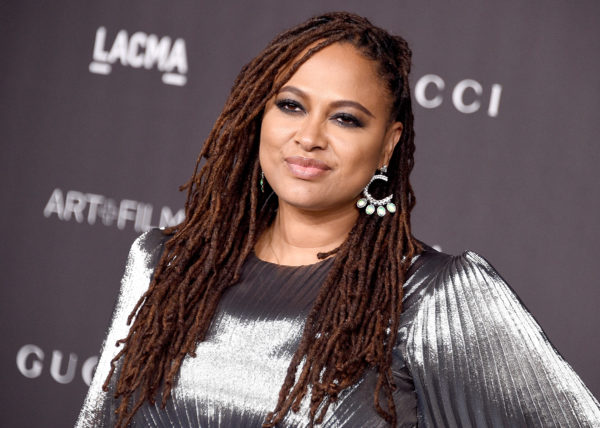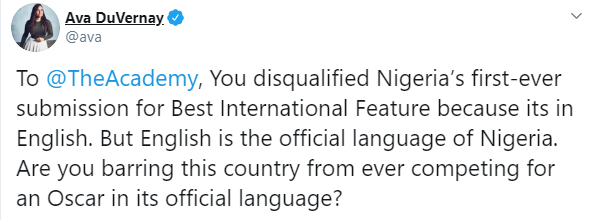A Nigerian film that would have made history at the Oscars has now been disqualified from potentially being nominated over the amount of English in the movie. And now, American director Ava DuVernay is calling out the Academy Awards.
Genevieve Nnaji’s 2018 drama “Lionheart” had been submitted as a contender among the then-record 93 entries for the Oscars category of Best International Feature Film, The Wrap reported Monday. It was the first film submitted to the Oscars by Nigeria, an accomplishment Nnaji, who also stars in the film, celebrated last month.

“It’s an honor to be a part of such a pivotal moment in the history of Nigerian cinema. A moment we know will be replicated as our stories continue to resonate with audiences around the world. On behalf of the entire LIONHEART team and TEN Productions, we are grateful for this recognition and proud to carry the torch. Thank you all for the love and support thus far. ❤️🇳🇬,” she wrote on Instagram.
However, nearly a month after the flick was announced as a contender in the category, the Academy rescinded the nomination. It had been determined that the movie was not evaluated by the Academy’s International Feature Film Award Executive Committee prior to the Oct. 7 announcement. Recently, it was viewed and the committee found that it could not be considered for the category that had been previously known through this year as Best Foreign Language Film.
While the drama that focuses on a woman who rises to the challenge of working for her cruel brother after her father falls ill is partially in the Nigerian language of Igbo, it is mostly an English-language film. Because of that, it violates the Academy of Motion Picture Arts and Sciences’ rule that contenders for the Best International Feature category must contain “a predominantly non-English dialogue track.”
After the Academy sent an email to members announcing the disqualification on Monday, that meant plans for “Lionheart” to be screened as a double-feature alongside the Honduran entry, “Blood, Passion, and Coffee,” was also scrapped.
But the change did not sit well with DuVernay, who herself has made history at the Oscars when she became the first Black woman to be nominated as a director in a feature category for 2017’s documentary “13th.”
Speaking out on Twitter Nov. 4, the filmmaker remarked, “To @TheAcademy, You disqualified Nigeria’s first-ever submission for Best International Feature because its in English. But English is the official language of Nigeria. Are you barring this country from ever competing for an Oscar in its official language?”

Nigeria’s official language is English because of the former British colonial rule of the West African country.
Nnaji herself appreciated DuVernay’s tweet and pointed out why English is part of the country and the film. She said, Thank you so much @ava ❤️. … This movie represents the way we speak as Nigerians. This includes English which acts as a bridge between the 500+ languages spoken in our country; thereby making us #OneNigeria. @TheAcademy.”
She added in a follow-up tweet, “It’s no different to how French connects communities in former French colonies. We did not choose who colonized us. As ever, this film and many like it, is proudly Nigerian. @TheAcademy.”
Movie fans online have also been siding with Nnaji and DuVernay’s reasoning. There’s even a petition that’s been launched to reverse the Academy’s decision.
“And we literally speak English because they came to our country made us lol.”
“Hello colonialism. I haven’t seen you in about five seconds. Oh you’re punishing me for being one of the colonised? What a novel idea!”


